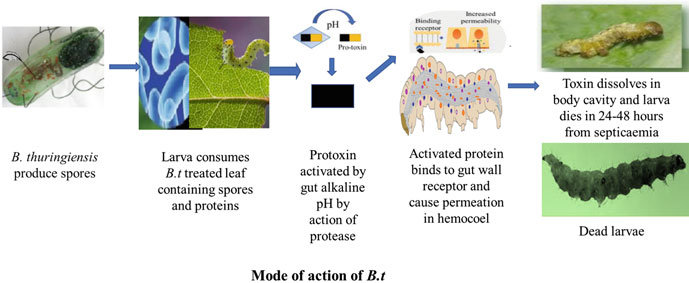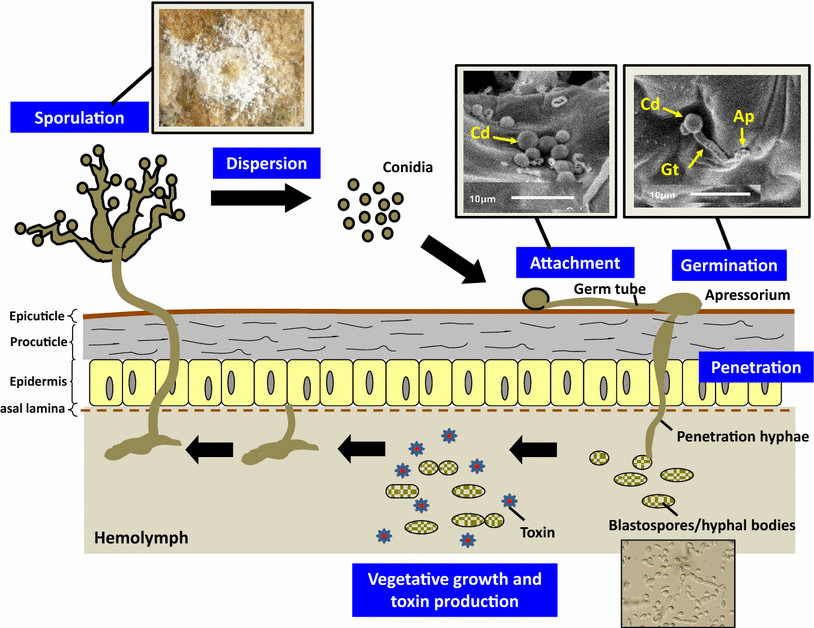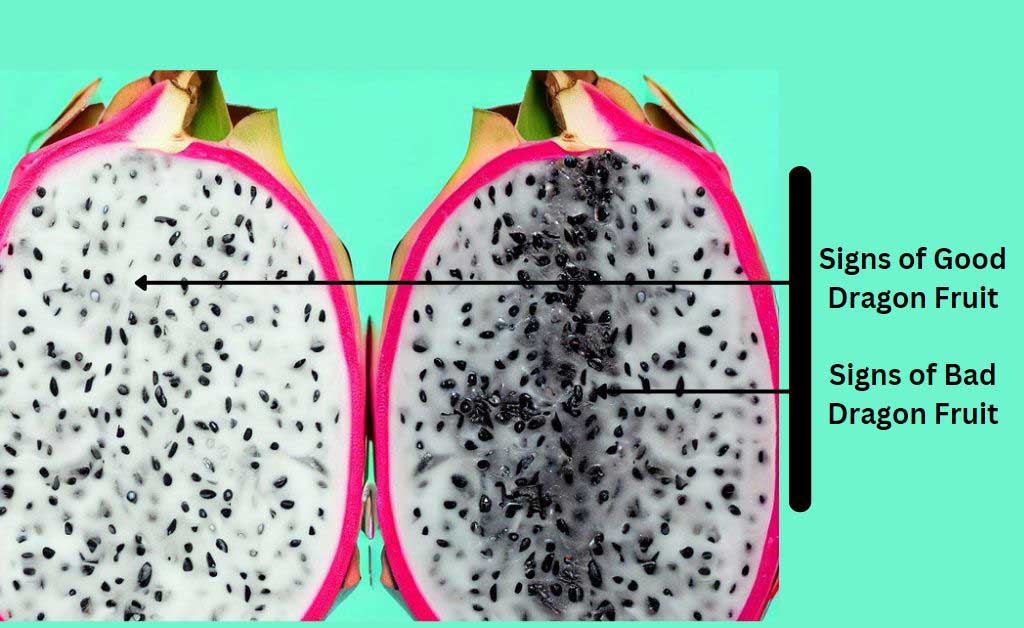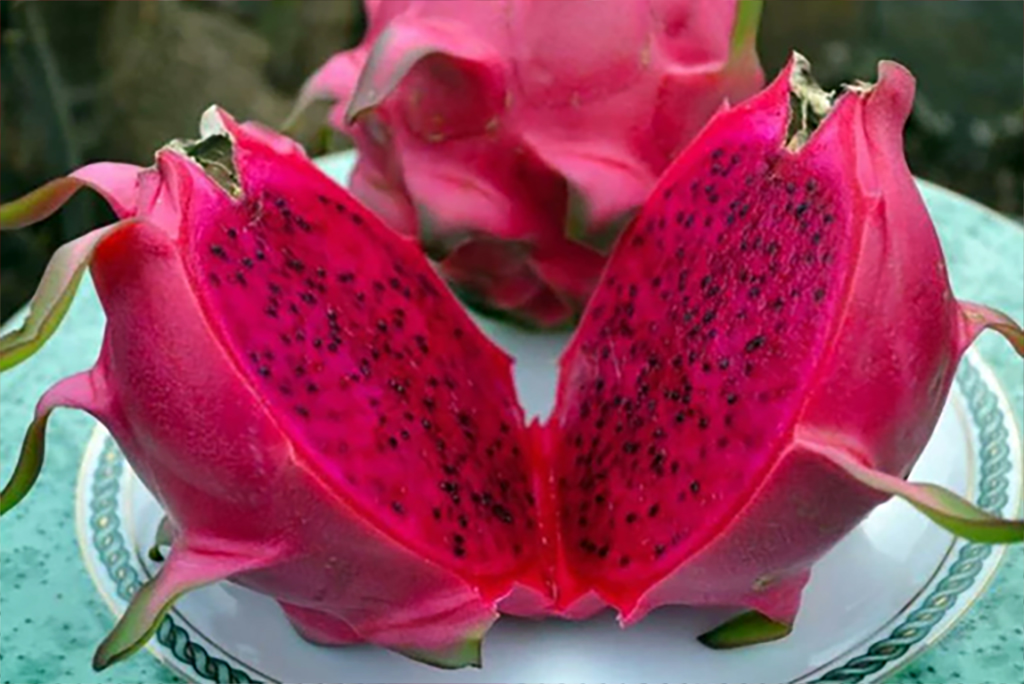In the intricate tapestry of dragon fruit cultivation, the saga of microbial pest control begins with carefully selecting microbes. As the curtain rises on this crucial act, two eminent protagonists, Bacillus thuringiensis and Beauveria bassiana, gracefully take center stage. Their selection is a strategic dance, ensuring a harmonious and targeted defence against specific pests while preserving the delicate balance of the orchard ecosystem.
Table of Contents
Bacillus thuringiensis (Bt): A Bacterial Maestro

Targeted Caterpillar Control
Bacillus thuringiensis emerges as a bacterial maestro in the dragon fruit pest control symphony, particularly when facing the menace of caterpillars. This naturally occurring bacterium is renowned for its ability to produce Cry proteins, acting as precision-guided missiles that specifically target the digestive systems of caterpillar larvae.
Minimal Impact on Beneficial Insects
One of the distinguishing features of Bt is its selectivity. While dealing a lethal blow to caterpillars, it poses minimal harm to beneficial insects like pollinators. This precision in targeting pests allows dragon fruit farmers to foster a thriving ecosystem where natural pollinators can coexist with the orchard’s delicate blooms.
Environmentally Friendly Warfare
Bacillus thuringiensis represents an environmentally friendly warrior in the battle against pests. As a naturally occurring bacterium, its application aligns with the ethos of sustainable agriculture, where the defense of dragon fruit crops is conducted with respect for the broader environment.
Beauveria bassiana: The Fungal Virtuoso

Countering Beetle Invaders
As the microbial narrative unfolds, the entomopathogenic fungus Beauveria bassiana steps onto the stage, assuming the role of a fungal virtuoso adept at countering beetle invaders. Its prowess lies in infiltrating the exoskeleton of beetles, initiating an infection that disrupts their life cycles.
Preservation of Orchard Vitality
What distinguishes Beauveria bassiana is its capacity to selectively target pests without compromising the overall vitality of dragon fruit plants. This fungal ally becomes a guardian, strategically defending against beetles while nurturing the orchard’s health and productivity.
Natural Harmony in Action
The application of Beauveria bassiana exemplifies the concept of natural harmony. By harnessing the inherent predatory abilities of this fungus, dragon fruit farmers weave a symbiotic relationship, ensuring a balance that promotes the long-term health and resilience of the orchard.
The Unified Approach of Selecting Microbes

Strategic Integration
The selection of Bacillus thuringiensis and Beauveria bassiana is not a happenstance occurrence; it signifies a strategic integration of microbial allies. While Bt focuses on caterpillar threats, Beauveria bassiana complements the defense by specifically targeting beetles. This unified approach ensures comprehensive protection against a spectrum of pests while preserving the intricate balance of the orchard ecosystem.
Precision and Eco-Friendliness
The beauty of this selection lies in its precision and eco-friendliness. By choosing microbial allies tailored to address identified pest threats, dragon fruit farmers embrace a targeted and environmentally conscious strategy. This precision not only bolsters the sustainability of pest control practices but also nurtures a resilient and thriving orchard environment.
Conclusion: Nature’s Guardians in Concert
As the selection of microbial pathogens unfolds, Bacillus thuringiensis and Beauveria bassiana stand as nature’s guardians, conducting a harmonious symphony with dragon fruit orchards. Their specific abilities to combat pests without collateral damage to beneficial insects or the environment exemplify a sophisticated and sustainable approach to pest control.
In the ongoing saga of dragon fruit cultivation, the orchestration of Bacillus thuringiensis and Beauveria bassiana reflects not only a commitment to safeguarding crops but also a dedication to nurturing a flourishing and resilient agricultural landscape. These microbial allies, carefully chosen for their precision and eco-friendliness, embody the potential of nature-inspired solutions in the pursuit of sustainable agriculture.
